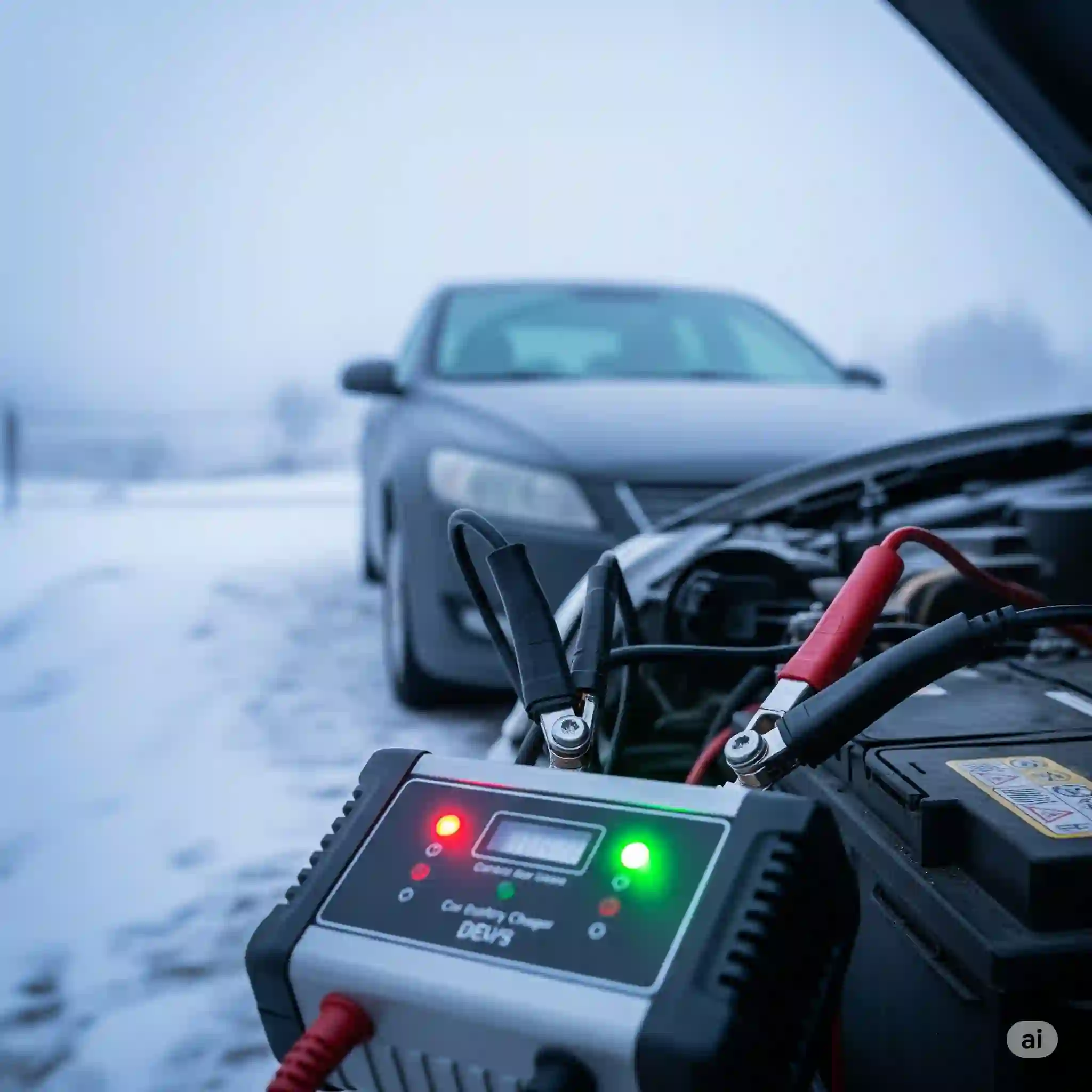I still remember the winter morning when my car wouldn’t start. I was already late, coffee in hand, and that dreaded click from the ignition was all I got. No rumble, no start—just silence. That one moment taught me a big lesson: having the best car battery charger isn’t a luxury. It’s a must.
Whether your car sits idle in the garage, you drive an old beater, or you just want to avoid the headache of a dead battery, a good charger can save your day—and your wallet. With so many options out there, from tiny trickle units to full-on smart chargers, it’s easy to get lost in specs and sales talk. I’ve been there.
So in this guide, I’ll walk you through what I’ve learned firsthand. I’ve tested, researched, and lived through both cheap chargers that failed and solid ones that saved the day. We’ll look at the best automatic car battery chargers, what really works for the long haul, and what features are worth your money.
Why a Good Car Battery Charger Matters
Here’s the thing: car batteries don’t wait for the “right time” to die. It could be a freezing Monday morning or a hot afternoon in a grocery store parking lot. One moment your car is fine—the next, it’s not even clicking. That’s where having the best car battery charger changes everything. It’s like having a spare key to your car’s heartbeat.
A car battery charger works by feeding energy back into your drained battery, helping it recover. But not all chargers do the same job. Some are designed to charge quickly, while others are better for maintaining your battery’s health over time. If you’ve ever let a car sit for a couple of weeks and come back to a dead battery, you know how helpful a maintainer can be.
Here’s a short answer: A good car battery charger gives you the power to prevent breakdowns and avoid the stress of emergency jump starts or expensive tows.
I’ve had both types. My older SUV needed a fast charger after I left the dome light on all night (classic move, I know). But for my motorcycle that sits most of the winter? A slow, automatic battery maintainer is perfect. It keeps the charge topped off without overdoing it.
A reliable charger also saves you money. You don’t need to call a tow truck or bother a neighbor for jumper cables. And in the long run, keeping your battery charged the right way actually helps it live longer—sometimes by years.
So if you’re wondering what is the best battery charger for cars, the answer really depends on how you use your vehicle. Daily driver? Stored classic? Weekend ATV? The right charger can match your routine and save your battery before it ever lets you down.
My Top Picks for the Best Car Battery Chargers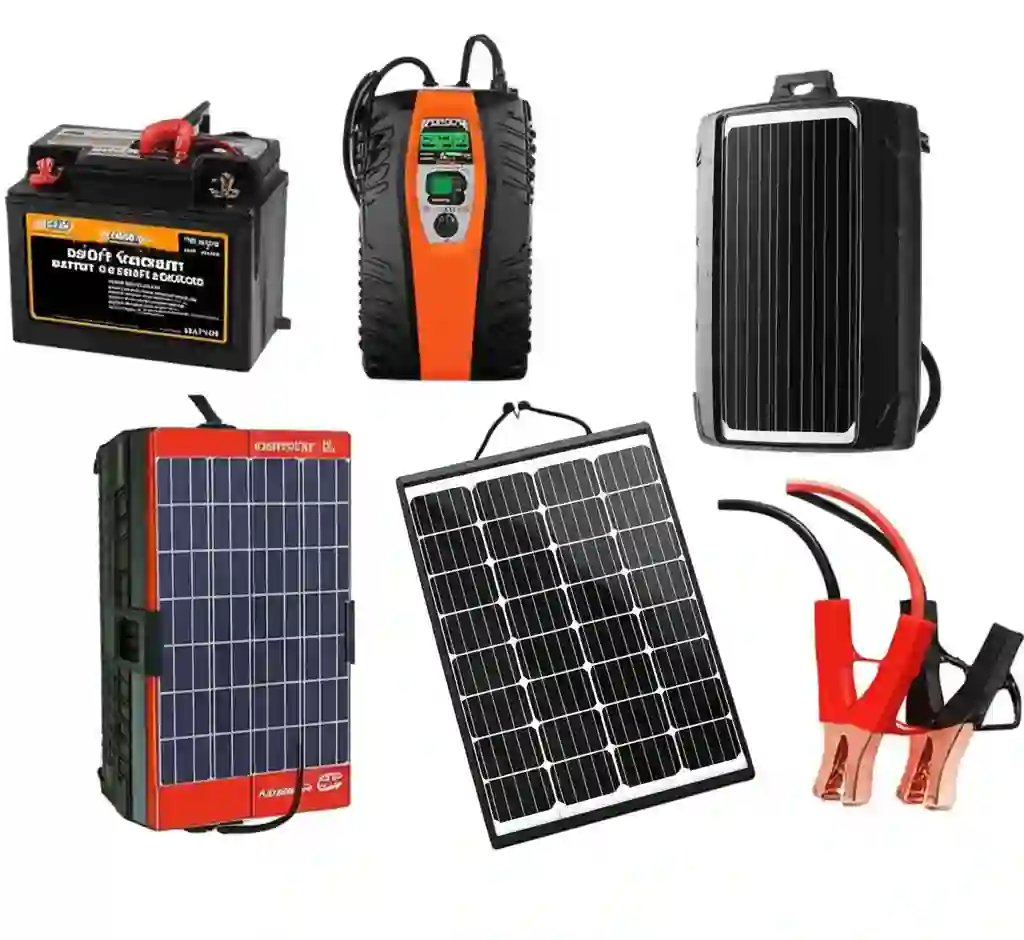
When it comes to choosing the best car battery charger, I’ve learned it’s not one-size-fits-all. Different vehicles, climates, and lifestyles call for different chargers. Some are simple and perfect for weekend drivers. Others are powerhouses built for emergencies or multiple vehicles. Below are my personal top picks—tested, trusted, and used in real situations.
If you’ve ever asked yourself what is the best battery charger for cars?—you’re in the right place. Let’s dive in.
1. NOCO Genius 1 – Best for Maintenance & Simplicity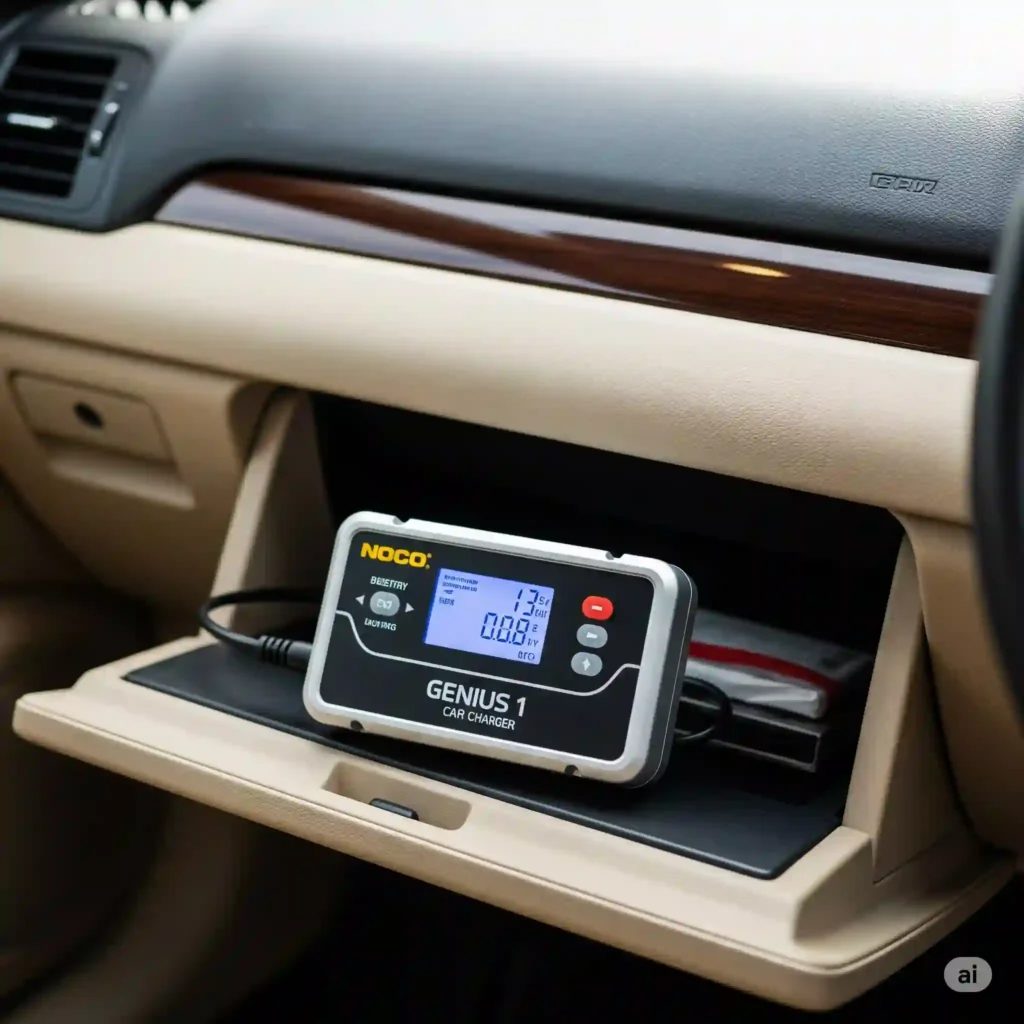
If you want something compact, smart, and stress-free, the NOCO Genius 1 is hard to beat. I’ve used this little charger on everything from my motorcycle to my old Civic, and it’s been a dependable sidekick.
What I like: It’s small enough to stash in your glove box and smart enough to switch between 6V and 12V automatically. For maintenance charging, it’s perfect. Just plug it in and walk away. It won’t overcharge, and it even has a repair mode that can help bring lightly sulfated batteries back to life.
What could be better: It only outputs 1 amp, which is fine for maintaining or slowly charging—but if your battery’s fully dead, you’ll be waiting a while.
The NOCO Genius 1 is the best automatic car battery charger if you want simple, steady battery care with zero fuss.
2. Schumacher SC1280 – Best for Fast Charging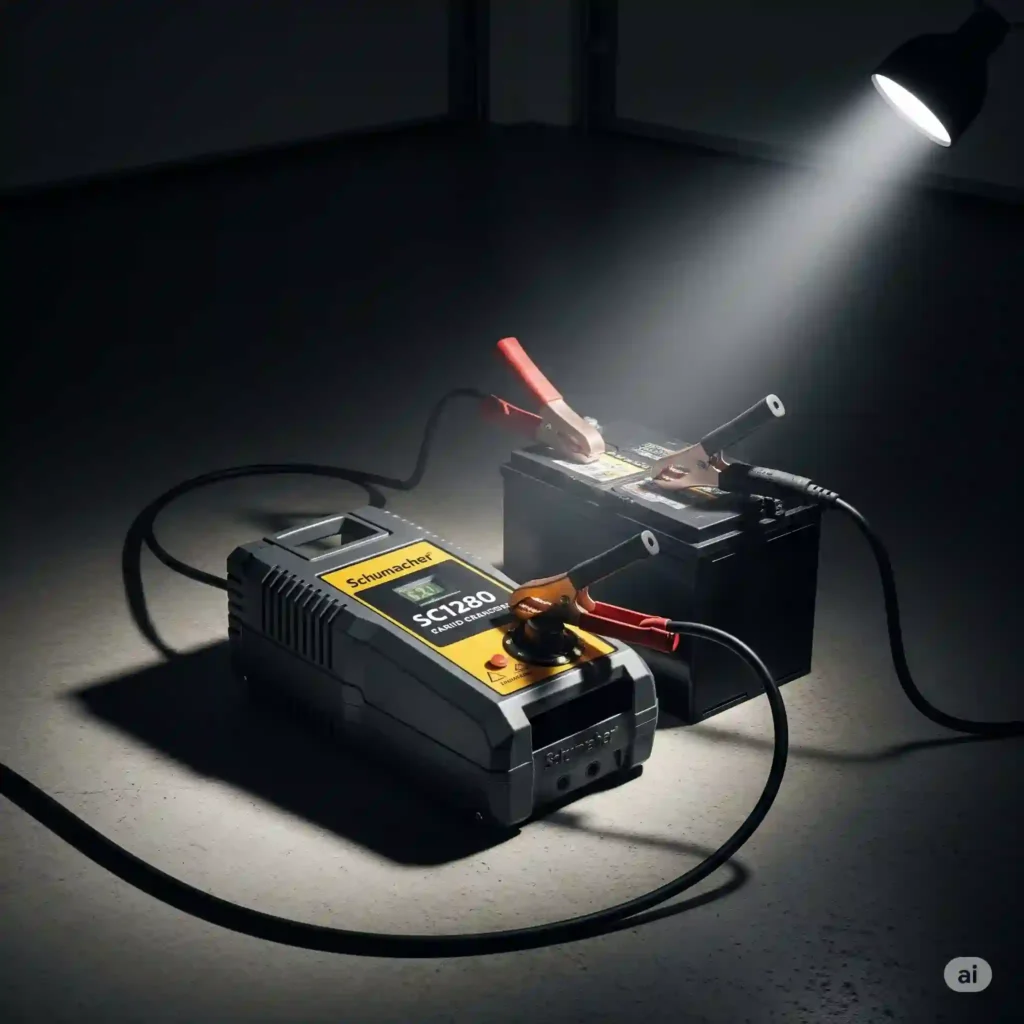
I picked up the Schumacher SC1280 when I needed something more powerful for my work truck. It’s a 15-amp charger, which means it juices up a dead battery fast—like, noticeably faster than the 1–2 amp units.
Why it stood out: This thing has range. It supports both 6V and 12V systems and adjusts charging automatically. I really liked how it has DE sulfation mode too, especially for older batteries that still have some life left.
Best for: Anyone with multiple vehicles or anyone who needs to recharge quickly—like if you’ve got kids to drop off or a morning commute to beat.
What to keep in mind: It’s a bit bulkier and louder during operation. I wouldn’t call it whisper quiet, and it takes up more space in the garage.
Short answer: If you’re asking what is the best battery charger for cars that need quick recovery, the SC1280 is a solid pick.
3. Battery Tender Plus – Best for Long-Term Storage
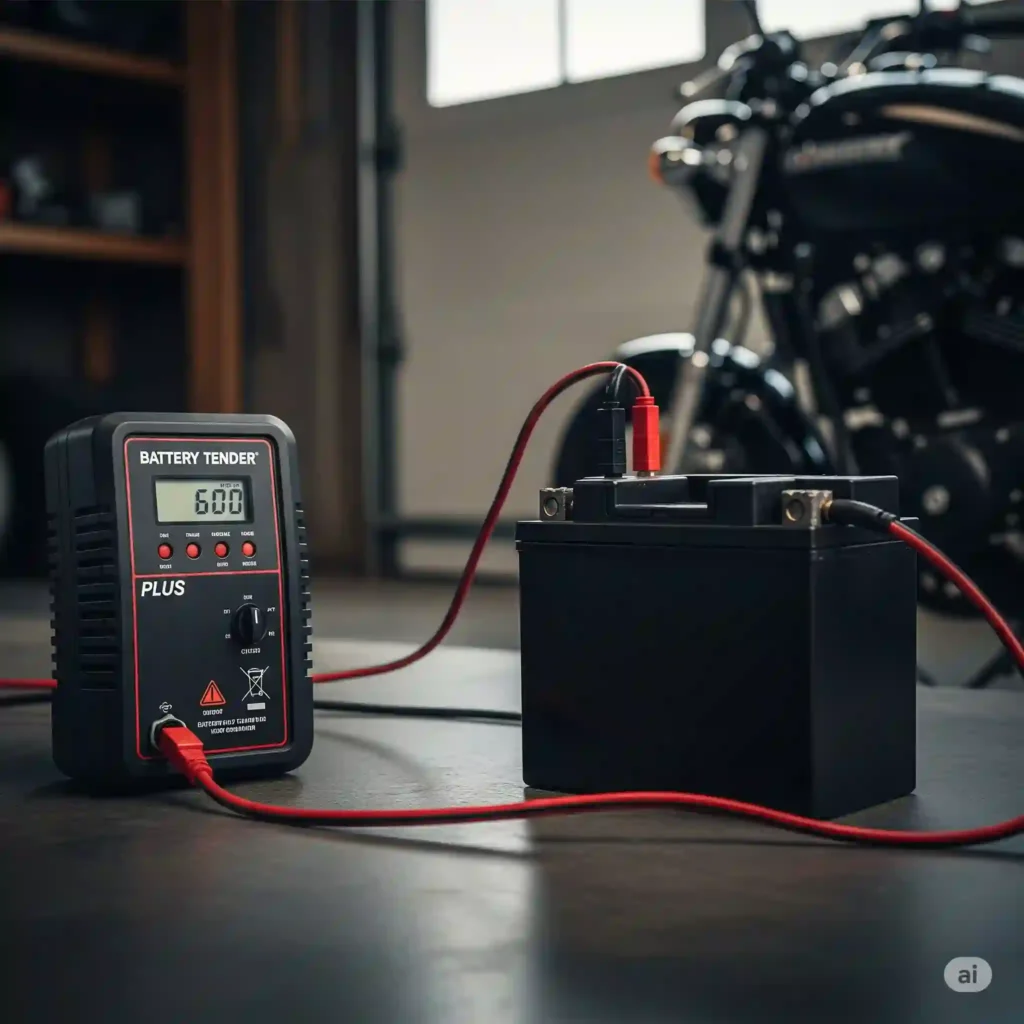
This one’s a classic. The Battery Tender Plus was my go-to when I had a motorcycle that sat for months during the winter. It’s made for slow, steady charging, and that’s exactly what your battery needs when it’s not in use.
Why it’s great: It’s super user-friendly. There’s nothing flashy—just a reliable 1.25-amp charger that keeps your battery healthy without overdoing it. The quick-connect harness is a lifesaver if you plan to hook it up regularly.
Ideal for: Motorcycles, ATVs, and cars that spend a lot of time parked. Also perfect for beginners who don’t want to overthink charging.
Value factor: It comes with a 10-year warranty and solid customer support, so it’s an investment that sticks.
If you’re looking for the best battery charger for car batteries that sit idle, especially in the garage, this is the one.
4. Tower Top Smart Charger – Most Powerful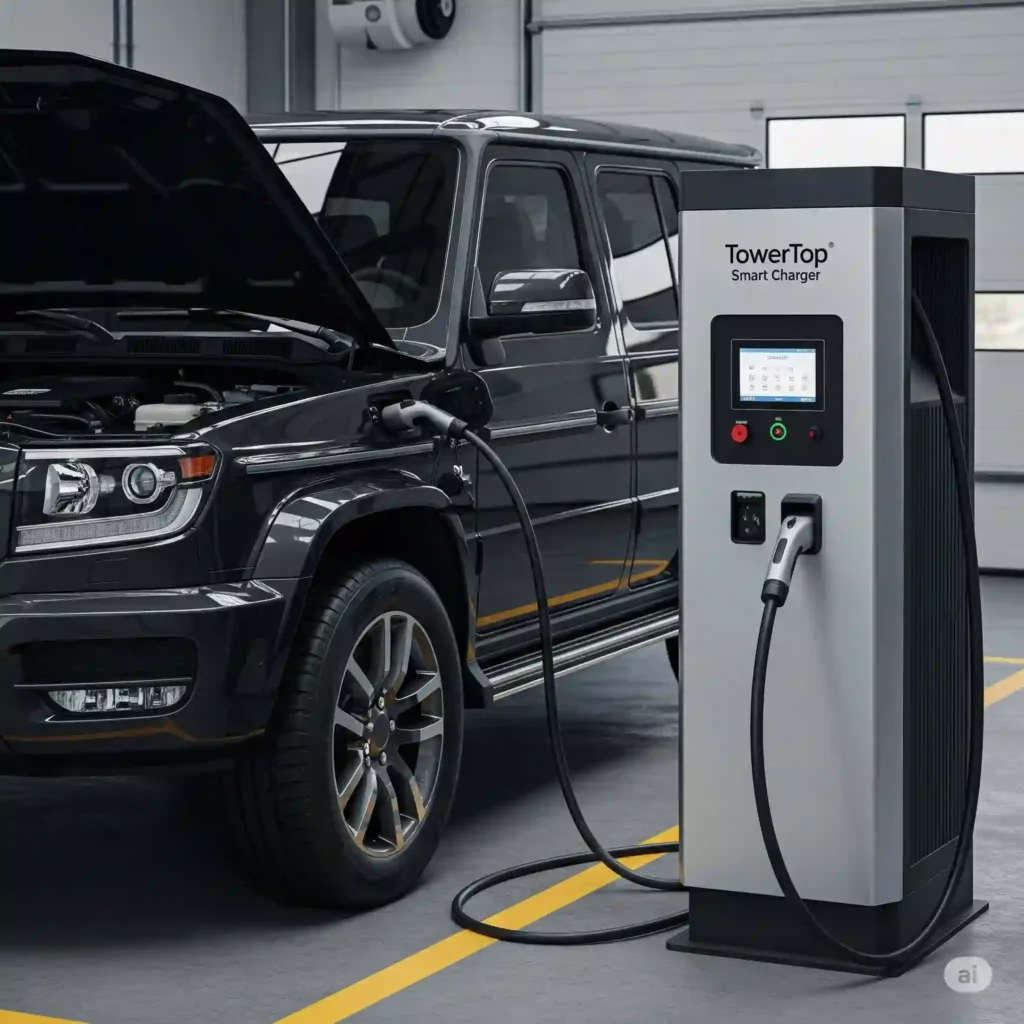
The Tower Top charger is like bringing a power station to your garage. I bought this after dealing with a completely dead SUV battery that just wouldn’t come back with a low-amp charger. This one delivered—fast.
What makes it different: It has a 25-amp charging mode and a built-in 100-amp engine start function. I’ve used that boost more than once during cold mornings, and it saved me from calling for a jump.
Who it’s for: Anyone with large vehicles, trucks, RVs, or even boats. It’s also ideal if you want a charger that can revive and maintain multiple battery types—AGM, gel, flooded—you name it.
Heads-up: It’s not the most beginner-friendly. Lots of buttons, modes, and a bit of a learning curve. But once you get used to it, it’s incredibly powerful.
If power is your priority, this is the best car battery charger for serious recovery and heavy-duty use.
5. Sun Energies Solar Charger – Best for Off-Grid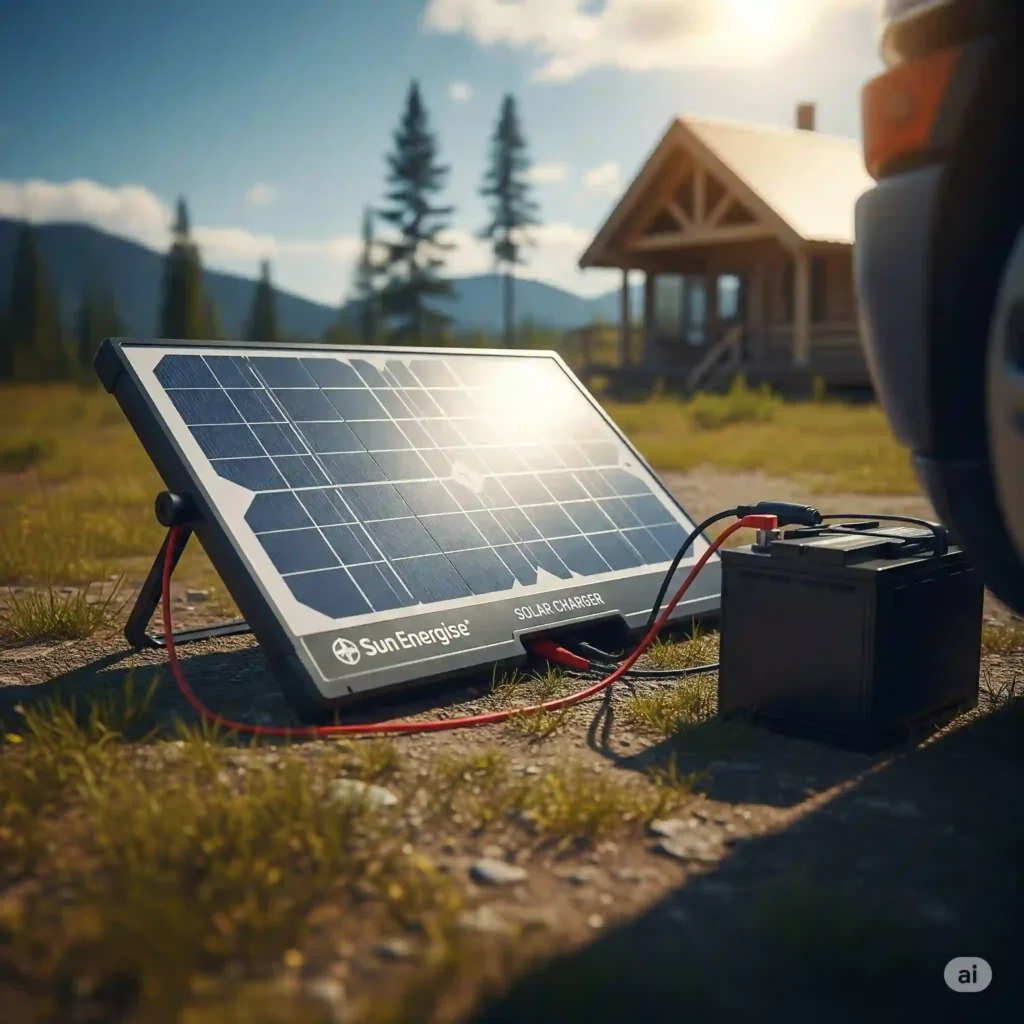
This one’s a bit different. I tested the Sun Energies solar charger on a cabin trip where my car sat unused for a couple of weeks. It worked like a charm, quietly topping off the battery using just sunlight.
Why it’s awesome: It’s completely solar-powered, which means no need for wall outlets or cords. You just place the panel in the sun and let it do its thing. It’s slow, but great for maintenance.
Best use case: Seasonal vehicles, tractors, boats, or cars parked outdoors for weeks. It’s weather-resistant and designed to handle the elements.
Downside: Charging is dependent on sunlight. On cloudy days, expect slower results. And it won’t bring back a deeply dead battery.
If you want the best automatic car battery charger that works even off the grid, this is it.
Each of these chargers has its own sweet spot. Whether you want something simple, powerful, fast, or solar-powered, there’s a charger here that fits your lifestyle. What matters most is choosing the right tool for how and when you use your vehicle. Trust me—having the right charger on hand makes all the difference when your car won’t start and time isn’t on your side.
Comparison Table: Best Car Battery Chargers in 2025
|
Charger Model |
Amp Rating | Best For | Supported Battery Types | Smart Features |
Ease of Use |
|
NOCO Genius 1 |
1 Amp | Maintenance, motorcycles, cars | 6V/12V Lead-Acid, AGM, Lithium | Auto voltage detection, Repair mode | Very easy |
|
Schumacher SC1280 |
15 Amp | Fast charging for cars/trucks | 6V/12V Lead-Acid, AGM | Auto-detect, De sulfation | Moderate |
| Battery Tender Plus | 1.25 Amp | Long-term storage, ATVs | 12V Lead-Acid, AGM, Gel | Float mode, Quick-connect |
Very easy |
| Tower Top Smart Charger | 25 Amp (100A Start) | Large vehicles, emergencies | 12V Lead-Acid, AGM, Gel, Deep Cycle | Engine start, Auto adjust |
Moderate (learning curve) |
|
Sun Energies Solar |
4W–10W Solar | Off-grid, seasonal vehicles | 12V Lead-Acid, AGM | Auto shut-off, Weatherproof |
Easy, no outlet needed |
What to Look for in a Car Battery Charger (Before You Buy)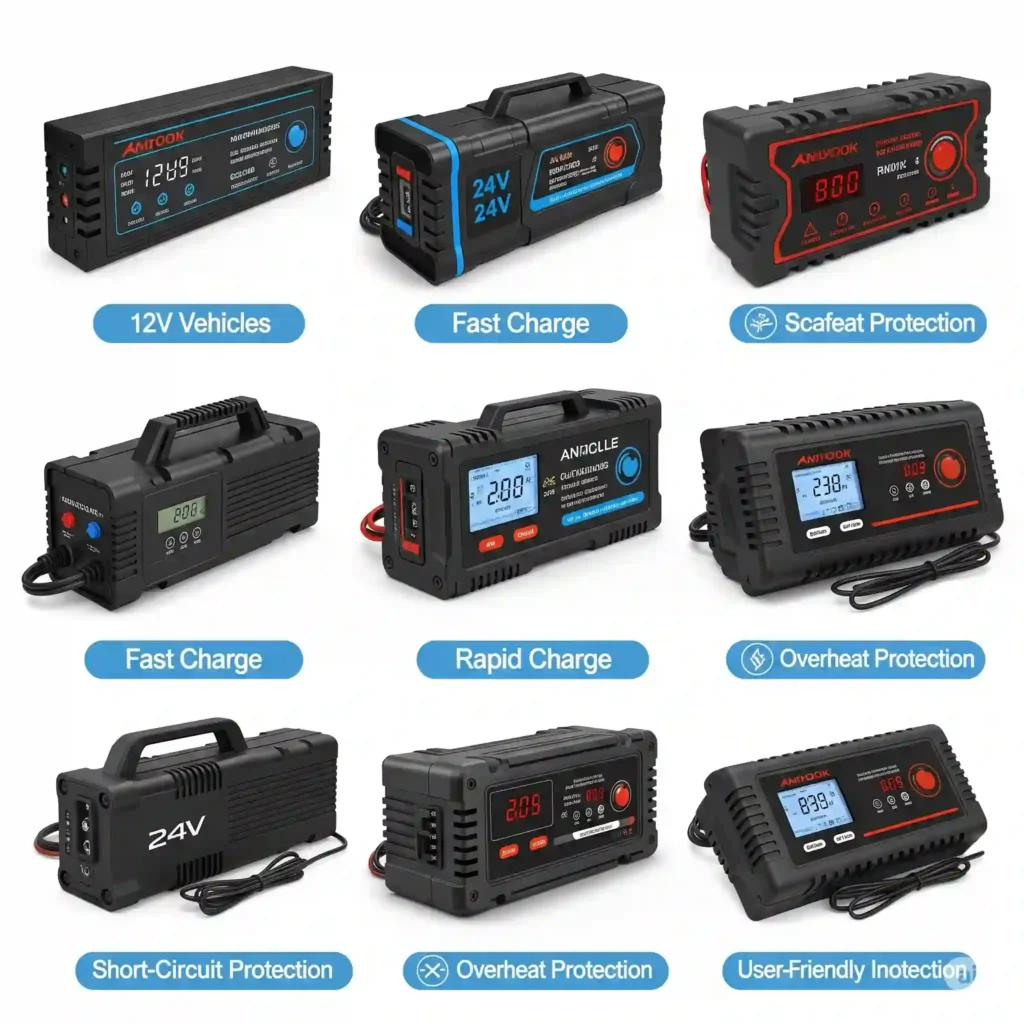
Choosing the best car battery charger isn’t just about grabbing the most expensive one off the shelf. It’s about finding the charger that fits your battery, your habits, and your vehicle. Over the years, I’ve learned that buying the wrong type can be frustrating—and even risky. So before you click “add to cart,” here’s what to look for based on real experience and what actually matters.
Compatibility
Before anything else, check what kind of battery you have. Not all chargers work with every battery type. Some are made for standard lead-acid batteries, while others are better suited for AGM, gel, or even lithium.
One quick way to know? Look at the label on your battery or check your owner’s manual. I’ve made the mistake of using the wrong charger on an AGM battery once—it didn’t damage it, but it definitely didn’t help either.
Short answer: Make sure your charger supports your battery type (lead-acid, AGM, gel, or lithium) to avoid charging problems or reduced battery life.
If you’re not sure what battery type you’re working with, stick with a smart charger that auto-detects battery chemistry. Many of today’s best automatic car battery chargers do this without needing input from you.
Charging Speed vs. Maintenance Mode
Charging speed is where things really start to vary. Some chargers push 15 to 25 amps for quick recovery, while others trickle at 1 to 2 amps to maintain the battery gently over time.
For emergencies, faster is better. But for long-term storage—like a motorcycle or RV parked over winter—a slow charger with automatic shut-off is safer and smarter. I use both depending on the vehicle. For my daily driver, I want fast charging. For my lawn tractor that hibernates all winter? A 1.5-amp maintainer works like a charm.
Short answer: Use fast chargers (10–25A) for quick recharges and trickle maintainers (1–2A) for long-term care and battery health.
Understanding amperage isn’t just technical jargon—it tells you how quickly your battery will get back to life. But more amps isn’t always better. If your battery is small, too much power can actually overheat or shorten its lifespan.
Safety Features
Trust me, one reversed clamp on a freezing morning is all it takes to wish you had better safety features. Thankfully, many modern chargers come with built-in protections like:
- Reverse polarity detection (so you don’t fry your system if you connect clamps the wrong way)
- Overcharge protection (which prevents your battery from cooking if you forget it’s plugged in)
- Short-circuit shutoff (to guard against sparks and surges)
- Temperature sensors (which adjust the charge rate in extreme heat or cold)
I once left an old charger on overnight in the garage and woke up to a warm, swollen battery—not fun, and not safe.
Short answer: Always choose a charger with reverse polarity, short-circuit, and overcharge protection—it’s peace of mind you’ll never regret.
Ease of Use
Some chargers feel like you need an engineering degree to operate. Others? Plug, clamp, and done. Unless you love fiddling with buttons and manual modes, I recommend choosing something with automatic detection and a simple interface.
Digital displays are great for showing charge status, voltage, and even error messages. But even a basic LED indicator works if you just need something simple.
And don’t overlook cable length and portability. A short cable in a tight garage can be a pain. I keep a small extension cord in my trunk for that reason alone.
Short answer: Look for a charger with auto-detection, simple displays, and long cables for easy use in real-world setups.
Some of the best battery chargers for cars make things easier by doing the thinking for you—auto mode, smart microprocessors, and built-in diagnostics. When I’m helping a friend or working in a rush, I always reach for those.
My Advice Based on Experience
I’ve lost count of how many times a car battery has caught me off guard. One winter morning, I hopped into my SUV, turned the key, and got nothing but a sad click. No warning. No lights. Just silence. That moment reminded me: car batteries don’t care about your schedule. They die when they want.
A car battery charger can save your day, especially when your car won’t start and you need to be somewhere fast.
Over the years, I’ve learned to keep a charger close. One time, I forgot my dome light on overnight (yep, rookie move). By morning, the battery was toast. I plugged in my Schumacher fast charger, grabbed breakfast, and by the time I was ready to leave—boom, full power. No tow truck. No begging a neighbor for jumper cables. Just me, a charger, and a second chance at being on time.
Having the right charger nearby means no waiting, no towing, and no asking for help.
When winter rolls in, I prep all my vehicles. My motorcycle gets hooked up to the Battery Tender. It sits all season, but never fails to start come spring. My trick? I use a maintainer that shuts off automatically. No babysitting. No worrying about overcharging.
For parked vehicles, a maintainer keeps your battery fresh without damaging it.
I’ve also made mistakes. Once, I bought a no-name charger because it was cheap. It had no safety features. I accidentally reversed the clamps and—bam!—a spark, a burning smell, and a fried fuse. Lesson learned: never skip on safety. Now I always check for reverse polarity protection, auto shut-off, and temp sensors.
Cheap chargers without safety features can do more harm than good. Always choose one with built-in protections.
And here’s something most folks miss: storage matters. I keep my NOCO Genius in the glove box. It’s so small, it doesn’t get in the way. I also carry a long extension cord in my trunk. Sounds simple, but it saved me once when I parked just far enough from a plug to make charging awkward. That extra cord made all the difference.
A compact charger and long cord make it easier to charge wherever you are.
If I could go back and give myself one tip, it would be this: Don’t wait for your battery to fail. Get a charger that fits your routine now—before you need it. Whether it’s a solar unit for your boat, a smart charger for your car, or a maintainer for winter storage, it’s a small investment that pays off big when you’re stuck.
The best time to buy a charger is before your battery dies—not after.
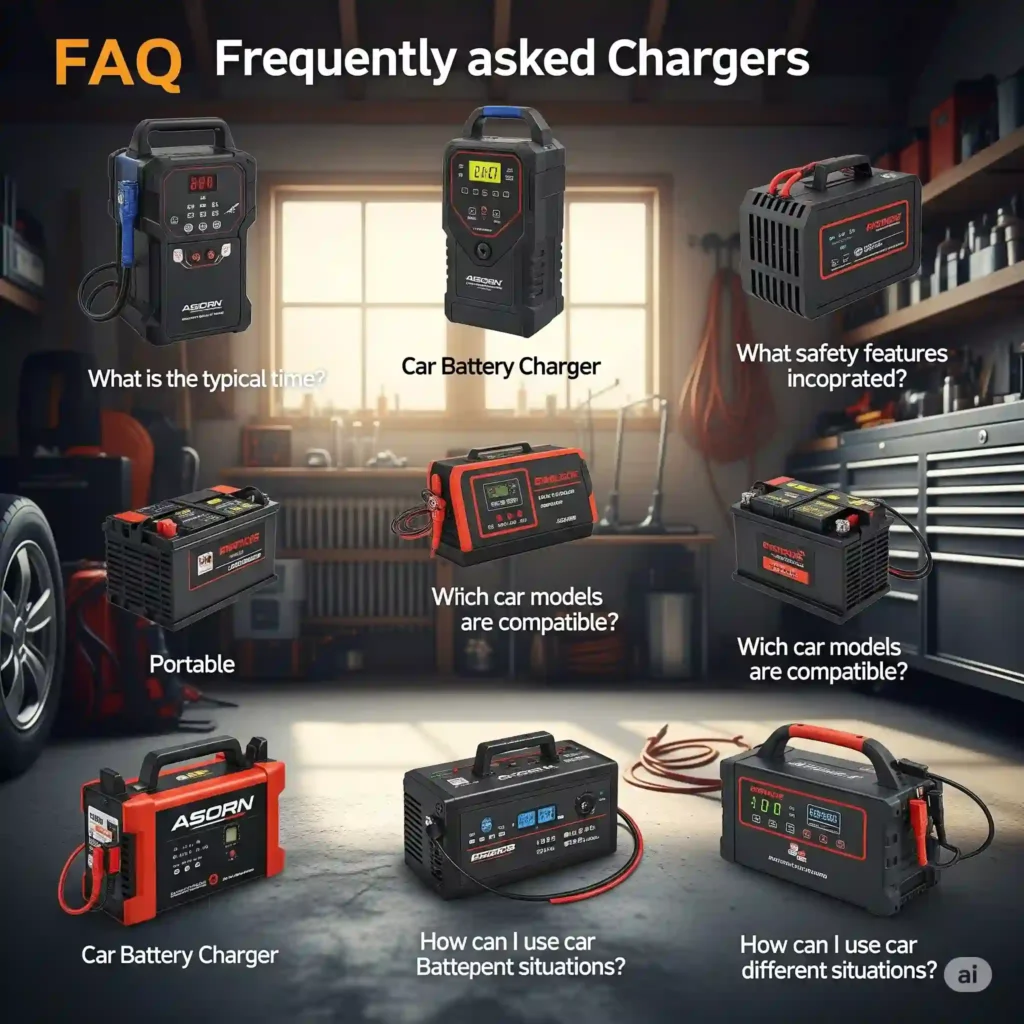 FAQs About Car Battery Chargers
FAQs About Car Battery Chargers
Q: What is the best car battery charger for everyday drivers?
The best car battery charger for daily use is a smart automatic charger with 4–10 amps, like the NOCO Genius 1 or Schumacher SC1280.
Q: Can a car battery charger jump-start my car?
Some high-amp chargers, like the Tower Top with 100A start mode, can jump-start your car. Most standard chargers are not built for jump-starts.
Q: How long does it take to charge a dead car battery?
Charging a dead car battery takes 4 to 12 hours depending on charger amperage. Higher amps charge faster, but lower amps are better for long-term health.
Q: Are car battery chargers safe to leave overnight?
Yes, most smart chargers are safe to leave overnight. They auto-shut off or switch to maintenance mode once the battery is fully charged.
Q: What charger works best for cold weather?
For cold weather, use a charger with temperature compensation and at least 10A output, like the Schumacher SC1280 or TowerTop Smart Charger.
Q: What’s the difference between a trickle charger and a maintainer?
A trickle charger sends a constant low current. A maintainer automatically turns on and off to keep the battery charged without overcharging.
Q: Can I use one charger for all battery types?
Many smart chargers auto-detect lead-acid, AGM, and gel batteries. For lithium batteries, check if the charger is lithium-compatible before use.
Q: What happens if I connect the charger wrong?
Modern chargers have reverse polarity protection. If connected wrong, they won’t charge or spark. Always check clamp placement before turning it on.
Q: Is a solar battery charger good for cars?
Yes, solar chargers work well for maintenance charging on parked vehicles. They are slow but useful if there’s no power outlet nearby.
Q: How often should I charge my car battery?
If you drive daily, no extra charging is needed. For stored cars, charge every 2-3 weeks or use a maintainer to keep the battery healthy.
Final Thoughts: Choosing the Best Car Battery Charger for You
Here’s what I’ve learned the hard way: not all chargers fit every lifestyle. The best car battery charger isn’t always the biggest or the most expensive. It’s the one that works for your routine.
Choose a car battery charger based on how often you drive, where you park, and what kind of battery you have.
If you drive every day, go for a smart automatic charger that gives quick top-ups when needed. Something like the Schumacher SC1280 fits well here—it’s fast, reliable, and easy to use. But if your vehicle sits for days or weeks, a slow and steady maintainer like the Battery Tender Plus is a quiet hero. It keeps your battery alive without a second thought.
Daily drivers need quick chargers. Stored vehicles do better with maintainers.
For larger rides—trucks, RVs, or even boats—you’ll want more power. That’s when a charger like the Tower Top with jump-start mode can really shine. And if you’re off-grid or just want a low-maintenance option for outdoor storage, solar chargers like the Sun Energies are great for peace of mind.
Bigger vehicles and off-grid use call for high-amp or solar-powered chargers.
Trust me, I’ve dealt with the panic of a dead battery too many times. The small act of keeping a charger in the trunk or garage has saved me late nights, cold mornings, and missed appointments. It’s one of those things you don’t know you need—until you really, really do.
Having the right charger ready can save you from stressful breakdowns and expensive tow bills.
In the end, buying a charger is like buying insurance—but cheaper and way more useful. Match the charger to your life, your climate, and your vehicle habits. Whether you’re a weekend driver, an everyday commuter, or a seasonal adventurer, there’s a perfect fit out there.
Pick the charger that fits your life, not just your car.
And here’s my last bit of advice: don’t wait until you’re stranded to think about this. A few minutes spent now choosing the right charger can save hours of frustration later. Future-you will thank you—probably while sipping coffee in a warm car that starts on the first try.

